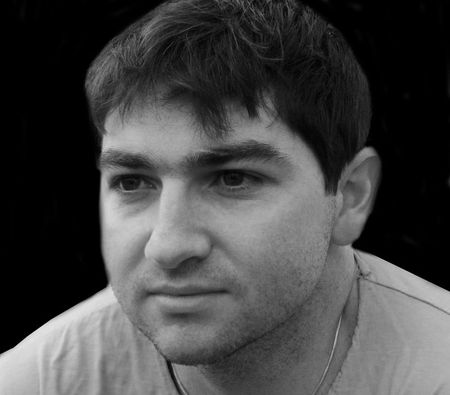Ever since the publication of a damning United Nations report in June that accused Rwanda of supporting rebels in the eastern Democratic Republic of Congo, Rwandan President Paul Kagame and his government have been on a charm offensive. This damage limitation exercise, characterized by thoughtful denials and patient explanations, culminated with a cover article in TIME Magazine last month, which although critical was not an unflattering portrait of the president, giving him plenty of column inches to tell his side of the story.
So far, the charm offensive has worked; the damage has been limited. Donor countries that had suspended aid are slowly releasing money again, and Kagame’s high-profile supporters, such as Tony Blair and Bill Clinton, remain on board. Meanwhile, the conflict in the DRC has largely faded from the headlines, even though the rebels effectively control most of the mineral-rich North Kivu province.
The UN, however, was not quite so ready to move on. Another report from the panel of experts appointed to look into the conflict was leaked to Reuters on Tuesday. If the first report was damning, this one is explosive; it’s hard to see how Rwanda can talk its way out of these accusations.
Chief among them is the revelation that Rwanda is not just supporting the M23 rebel movement; it is commanding it too. According to the report, M23 “receive direct military orders from RDF (Rwandan army) Chief of Defence Staff General Charles Kayonga, who in turn acts on instructions from Minister of Defence General James Kabarebe.” Rwanda’s defence minister, in other words, is at the very top of M23’s chain of command.
“Rwandan officials exercise overall command and strategic planning for M23,” the report adds. “Rwanda continues to violate the arms embargo through direct military support to M23 rebels, facilitation of recruitment, encouragement and facilitation of FARDC (Congolese army) desertions as well as the provision of arms and ammunition, intelligence and political advice.”
This paints a picture of Rwanda as more than just a generous benefactor to the rebels. In fact, it’s hard to tell where Rwanda’s armed forces end and the rebels begin – and even harder to distinguish between an internal rebellion and a Rwandan invasion.
The report’s accusations are not just limited to Rwanda. This time Uganda comes in for some flak too: “While Rwandan officials coordinated the creation of the rebel movement as well as its major military operations, Uganda's more subtle support to M23 allowed the rebel group's political branch to operate from within Kampala and boost its external relations.”
Uganda’s support isn’t always that subtle. “UPDF (Ugandan army) commanders sent troops and weapons to reinforce specific M23 operations and assisted in M23's recruitment and weapons procurement efforts in Uganda,” the panel of experts said.
This is not the first time Rwanda and Uganda have found themselves on the same side of a Congolese conflict. Along with Burundi, the two countries – whose leadership shares a deep historical bond, even if relations have been strained on occasion – were on the same side of the second Congo War, also known as the Great African War; the vicious, brutal conflict that started in 1998 and only really ended with the peace deal in 2008, drawing in eight African countries and leading to the deaths of millions of people. Disturbingly, it was conflict in North Kivu – involving the same rebel movement from which M23 evolved – that sparked the war.
Inevitably, both Rwandan and Ugandan government officials have vehemently denied any involvement. “Where's the evidence for their claims? Some of those so-called experts came here and did not interview anyone,” said Ugandan military spokesman Felix Kulayigye. “Where’s their authentic facts to back those claims? Those accusations are absolute rubbish, hogwash.”
Rwanda’s UN envoy Olivier Nduhungirehe, meanwhile, dismissed the panel of experts, saying they had been “allowed to pursue a political agenda that has nothing to do with getting at the true causes of conflict in the eastern DRC”.
These denials don’t ring true. For a start, we’ve heard them before – every time anyone even insinuates that there are foreign powers meddling in the affairs of the eastern Congo. And more significantly, the motives for the involvement of both Rwanda and Uganda are so strong.
Both countries fear an exiled insurgent group which operates in and around North Kivu (the exiled genocidaires that formed the FDLR for Rwanda, and Joseph Kony’s Lord’s Resistance Army for Uganda), so will benefit from some kind of buffer state or proxy government in the area which would keep those groups in check. Both countries, and particularly their overly-powerful militaries, also stand to gain hugely from increased exploitation of the area’s mineral wealth (Rwanda, for example, consistently exports significantly more coltan than its own mines produce). And, most damningly, both countries – but particularly Rwanda – have a long track record of meddling in the DRC’s internal affairs for their own profit.
It is unlikely that either country will be able to wriggle out of the UN’s latest charges. What that means for the DRC, however, is still far from clear. DM
Read more:
- “Congo demands sanctions on Rwanda, Uganda over rebels,” on Reuters Africa
- “Mineral traders in Rwanda helping fund Congo rebels,” on Reuters Africa
Photo: Rwandan army chief James Kabarebe addresses soldiers pulling out of eastern Congo September 27, 2002. (Reuters)





